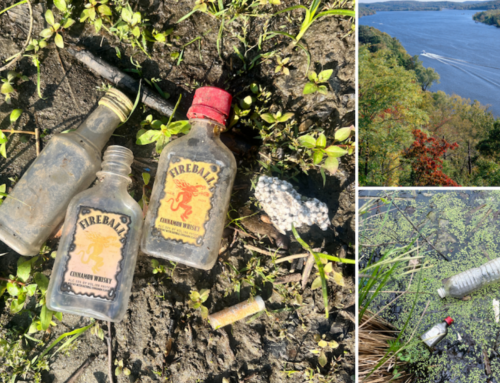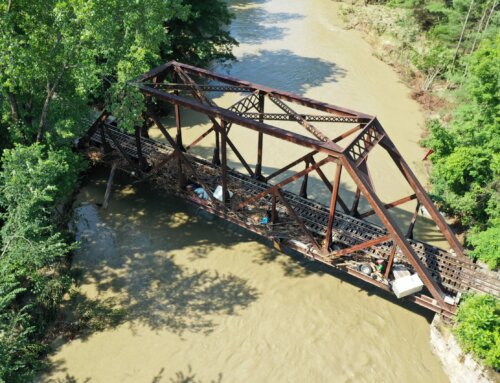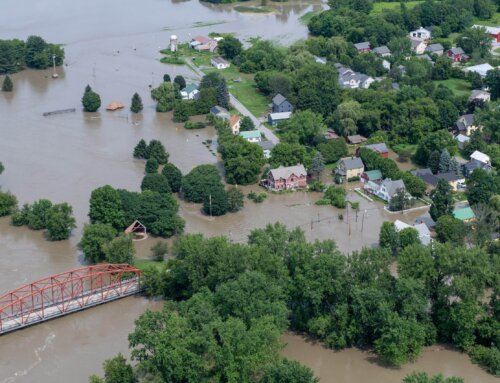January 22, 2020
Senator Michael Barrett, Senate Chairman
Representative Thomas Golden, House Chairman
Joint Committee on Telecommunications, Utilities and Energy
Massachusetts State House
Boston MA 02133
Submitted via email to: Kevin.Roberts@MAhouse.gov.
Regarding the following bills:
H2837/S.1939 – An Act to increase recycling in the commonwealth
H.2881/S.452. ‐ An Act promoting the proper disposal of miniatures
The overall need to modernize the Bottle Bill
Chairman Barrett, Chairman Golden and Members of the Committee,
The Connecticut River Watershed Council, Inc. (CRWC), doing business as the Connecticut River
Conservancy (CRC), is a nonprofit citizen group established in 1952 to advocate for the protection,
restoration, and sustainable use of the Connecticut River and its four‐state watershed. Each year, CRC
organizes a watershed‐wide trash cleanup event along rivers and streams in our four states. Our 23rd
annual Source to Sea Cleanup was held in September of 2019. In Massachusetts alone, we had 1,200
volunteers clean up at over 50 different locations along and in our waterways. During this event, our
Massachusetts groups found a total of 22,000 beverage containers of all types in and along our rivers.
This included 4,907 water bottles; 3,041 glass bottles; 4,262 aluminum cans; 4,481 nip bottles (called
“miniatures in one of the pieces of legislation up for discussion today); and 3,281 plastic containers
other than water bottles. These numbers are typical of what we find in our rivers every year.
We are grateful for our dedicated volunteers, but at the same time, we are sick of having to clean up our
rivers every single year. As part of our mission to advocate for clean rivers, we have been actively
working on trash reduction efforts that we see are contributing to the trash we find in our rivers. We
have been learning more about this issue and why it is a persistent problem along our waterways. This
comes at a time when Asian countries have been increasingly refusing to accept our plastics, and
communities in western Massachusetts are making decisions whether or not to sign a recycling contract
that will involve spending money to recycle for the first time ever (typically recycling has been a small
source of revenue).
We urge the legislature to work aggressively to pass bills that will:
reduce packaging,
allow for re‐usable packaging,
increase recycling,
shift cost burdens to the producers and away from municipalities and consumers, and
create market incentivizes for recycling and recycled products.
We encourage legislators to read through the draft 2030 MA Solid Waste Master Plan (SWMP). This
plan indicates that Massachusetts has not achieved the 30% waste reduction goal from the 2020 SWMP
for various reasons.
CRC supports the bills that would expand the types of containers included in the Bottle Bill. The Bottle
Bill very much needs to be modernized. A modernized Bottle Bill would do five things:
1. Reduce litter and litter cleanup costs – A 2018 study found that states with bottle bills had 40%
less litter than those without. Since the Massachusetts Bottle Bill was passed in the 1970’s, the
beverage industry has changed dramatically. The public consumes vastly more non‐carbonated
beverages, including bottled water, than they did in the 1970’s. Energy drinks, flavored iced
teas, sports drinks, vitamin drinks, and such were not even on the market then. A modernized
Bottle Bill would mean less litter in Massachusetts, and this would enormously benefit our
rivers;1
2. Get up to 300,000 tons of beverage containers out of curbside recycling, municipal recycling,
and disposal – A modernized Bottle Bill would cover almost all plastic, glass, and aluminum drink
containers, including water, tea, liquor, wine, and nip bottles and cans, so cities and towns don’t
have to pay to recycle or dispose of them;2
3. Increase the fee to increase redemption – In Massachusetts, consumers provide a 5‐cent deposit
per container and the redemption rate is less than 60%. Michigan recently increased their fee to
a dime and is now collecting over 92% of deposit return containers. A modernized Bottle Bill
should include an automatic deposit increase if the redemption rate drops;3
A deposit of five cents made sense in the 1970’s when the bottle bill was originally passed (and
an enterprising kid looking for pocket change could collect five beverage containers and buy a
candy bar with redemption money. That is certainly not the case now!). The deposit amount
needs to be adjusted to inflation to fit the 2020’s.
4. Improve the quantity and quality of recycled materials – According to MassDEP, about 25% of
single stream tonnage collected is contamination, which also makes it much harder to recycle.
Glass, plastic, and aluminum containers collected through redemption centers are well sorted,
clean, and recycled back into new containers;4
5. Save cities, towns, and businesses millions of dollars – A modernized Bottle Bill, expanded to a
10‐cent or 25‐cent deposit on almost all beverage containers, would save Massachusetts’ cities,
towns, and businesses up to $45 million a year in tipping fees alone.5
We would also like to note that how we handle our waste can also be linked to carbon emissions and
climate change. Thank you for the opportunity to comment on these bills. I can be reached at
adonlon@ctriver.org or (413) 772‐2020 x.205.
Sincerely,
Andrea F. Donlon
River Steward
Footnotes:
1 Susan Collins, (October 6, 2019), International Embrace, Resource Recycling,
https://resourcerecycling.com/recycling/2019/10/06/international‐embrace/
2 MassDEP, (September 2019), Draft 2030 Solid Waste Master Plan, Appendix B, p. 2‐5,
https://www.mass.gov/doc/massachusettsmaterials‐management‐capacity‐study‐february‐
2019/download
3 Leah Myers, (May 17, 2018), State lags behind in bottle redemption rates, Fox61,
https://fox61.com/2018/05/17/connecticut‐trails‐otherstates‐in‐bottle‐redemption‐rates/
4 Presentation by John Fischer, Deputy Division Director, Solid Waste Materials Management at
MassDEP, September 26, 2019.
5 MassDEP, (September 2019), Draft 2030 Solid Waste Master Plan, Appendix B, p. 2‐5,
https://www.mass.gov/doc/massachusettsmaterials‐management‐capacity‐study‐february‐
2019/download







